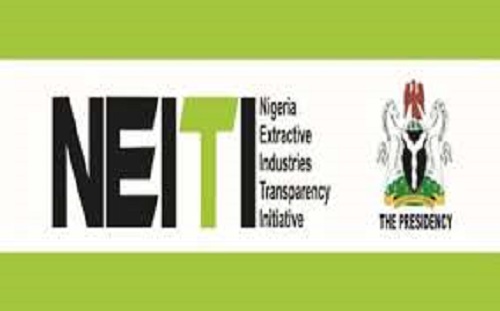The Nigeria Extractive Industries Transparency Initiative (NEITI) has commended Nigeria’s anti-corruption and financial integrity institutions for securing the country’s removal from the Financial Action Task Force (FATF) Grey List of countries under increased monitoring.
In a statement issued from NEITI House, the Executive Secretary, Dr. Orji Ogbonnaya Orji, described the development as “a strong vote of confidence in Nigeria’s reforms to combat corruption, improve financial transparency, and strengthen accountability systems across all sectors of the economy.”
Dr. Orji explained that the delisting follows demonstrable improvements in the effectiveness of Nigeria’s Anti-Money Laundering and Counter-Terrorist Financing (AML/CFT) framework, enhanced regulatory oversight, and sustained collaboration among key national stakeholders.
He highlighted the value of existing Memoranda of Understanding between NEITI and the EFCC, NFIU, and ICPC as effective platforms for information and data sharing to track money laundering, illicit financial flows.
He further acknowledged the excellent work of 24 member agencies under the Inter-Agency Task Team (IATT) chaired by NEITI, supported by the Technical Unit on Governance and Anti-Corruption Reforms (TUGAR), adding that strong political will and a policy of non-interference by the Federal Government were instrumental to the achievement.
Dr. Orji also commended the media and civil society for their vigilance, advocacy, public awareness campaigns, and “naming and shaming” efforts which strengthened public accountability and deterrence.
On the key benefits of Nigeria’s FATF Delisting, the NEITI Executive Secretary outlined the far-reaching positive implications of the delisting on Nigeria’s economy, governance, and investment climate, including:
- Boost to international credibility and investor confidence:
“Nigeria’s exit sends a clear signal that our financial system is increasingly compliant with global transparency and integrity standards, making the country more attractive for foreign investment and international partnerships,” Dr. Orji stated.
- Lower cost of financial transactions and improved access to global capital:
He explained that Nigeria is expected to benefit from reduced risk ratings, more efficient cross-border transactions, and improved access to international finance and correspondent banking services.
- Enhanced business environment and economic growth prospects:
“With the stigma of high-risk status removed, the private sector especially the extractive industries, will benefit from increased investor interest, smoother trade flows, and greater confidence in Nigeria’s financial governance,” he said.
NEITI emphasised that beyond financial markets, the delisting reflects the strengthening of Nigeria’s institutional reforms and the increased effectiveness of key anti-corruption and regulatory agencies, including the BPP, CCB, CBN, Federal Ministry of Justice, law enforcement bodies, development partners, and diplomatic missions.
Dr. Orji stressed that improved financial system integrity provides a more credible foundation for extractive-sector governance, revenue tracking, and anti-corruption reforms. He added that the momentum should now be used to:
- Sustain reforms on beneficial ownership disclosure and open contracting;
- Strengthen oversight of extractive revenue flows; and
- Deepen collaboration with global transparency and accountability institutions.
“The FATF delisting is not just a regulatory success—it is a governance success. It strengthens Nigeria’s standing in the international transparency community and reinforces NEITI’s work to ensure openness, accountability, and integrity in the extractive industry,” Dr. Orji affirmed.
He reiterated the Agency’s commitment to work closely with the anti-corruption community, development partners to consolidate the gains, prevent policy reversals, and deepen ongoing reforms to ensure Nigeria never returns to the grey list.


Comment here